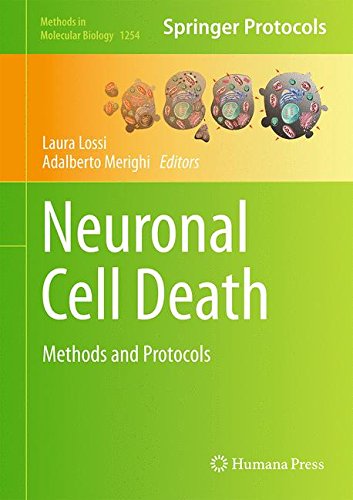

Most ebook files are in PDF format, so you can easily read them using various software such as Foxit Reader or directly on the Google Chrome browser.
Some ebook files are released by publishers in other formats such as .awz, .mobi, .epub, .fb2, etc. You may need to install specific software to read these formats on mobile/PC, such as Calibre.
Please read the tutorial at this link. https://ebooknice.com/page/post?id=faq
We offer FREE conversion to the popular formats you request; however, this may take some time. Therefore, right after payment, please email us, and we will try to provide the service as quickly as possible.
For some exceptional file formats or broken links (if any), please refrain from opening any disputes. Instead, email us first, and we will try to assist within a maximum of 6 hours.
EbookNice Team

Status:
Available5.0
30 reviewsThis volume represents a valuable and readily reproducible collection of established and emerging techniques for neuronal cell death research. Conveniently divided into four parts, sections cover a series of techniques for the molecular, structural, functional and genomic characterization of dying neurons, a number of protocols that are of primary interest in neuropathology and in experimental neuropathology, a series of gene engineering techniques to obtain and manipulate neuronal stem cells and progenitors, to prepare HSV-1 vectors for the gene therapy, and to CNS transplantation of bone marrow stem cells, and finally, some very interesting protocols for the study of cell death in non-mammalian models. Written in the successful Methods in Molecular Biology series format, chapters include introductions to their respective topics, lists of the necessary materials and reagents, step-by-step, readily reproducible protocols, and notes on troubleshooting and avoiding known pitfalls.
Authoritative and easily accessible, Neuronal Cell Death: Methods and Protocols seeks to serve a large audience of scientists that are currently active in the field or are willing to enter such an exciting and still expanding area of neurobiology.